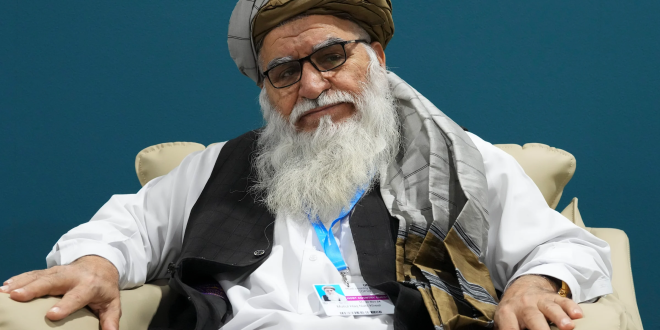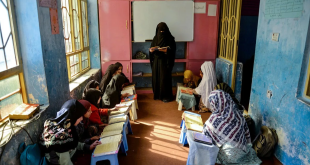KABUL — The Taliban’s top environmental authority is calling on the United Nations to include Afghanistan in formal climate negotiations, warning that the country is bearing the brunt of global warming despite having played virtually no role in causing it.
Matiul Haq Khalis, head of the National Environmental Protection Agency, made the appeal at a climate conference in Kabul on Monday, highlighting the devastating impact of extreme weather, prolonged drought, flash floods, and shrinking farmland on Afghanistan’s economy and daily life.
“Afghanistan is severely affected by climate change,” Khalis said. “Although our contribution to global emissions is almost nonexistent, the damage we endure is immense. As victims, we have a right to be present at global platforms, especially COP30, to voice our experience.”
Afghanistan sent a delegation to last year’s COP29 climate summit in Azerbaijan, but was not allowed to participate beyond observer status. Khalis said the country is preparing updated climate action plans and wants full participation in COP30, scheduled for later this year in Brazil.
Since the Taliban’s return to power in 2021, international environmental projects have largely been suspended, contributing to worsening conditions across the country. A recent UN report warned of below-average precipitation, higher-than-normal temperatures, and dangerously low soil moisture in June.
The report also noted an unusually early and intense monsoon season, which began in May instead of the typical June or July, bringing unpredictable rainfall patterns that have damaged crops and strained food security.
Khalis said Afghanistan holds significant potential for clean energy, particularly solar and wind, but requires international support to develop it. Despite being diplomatically isolated — with only Russia formally recognizing the Taliban government — the regime is seeking a platform to participate in global climate action.
 Afghanistan Times
Afghanistan Times




